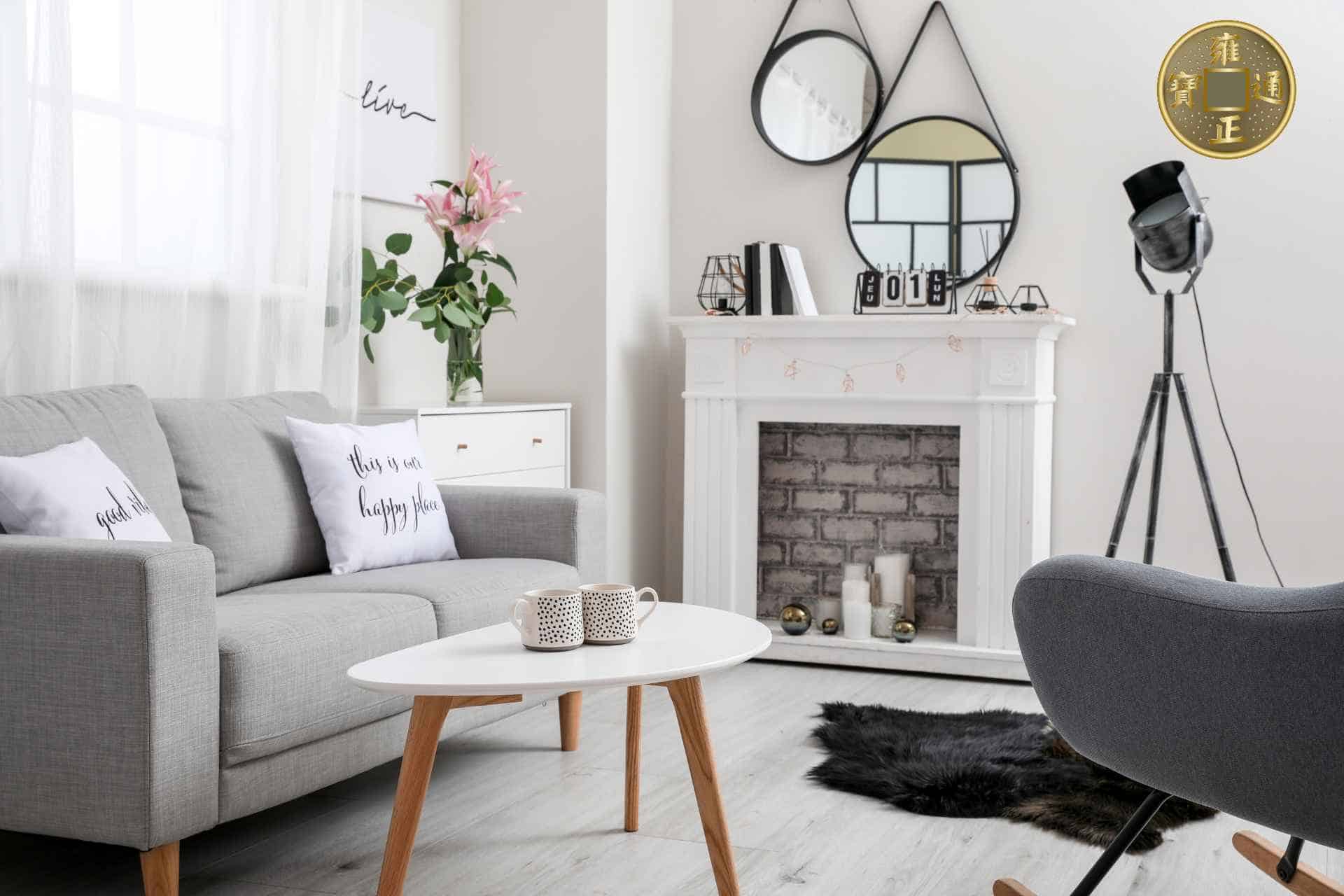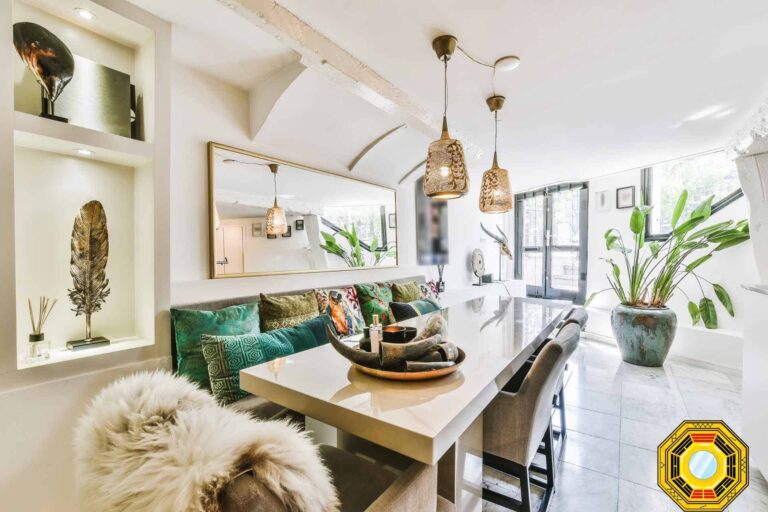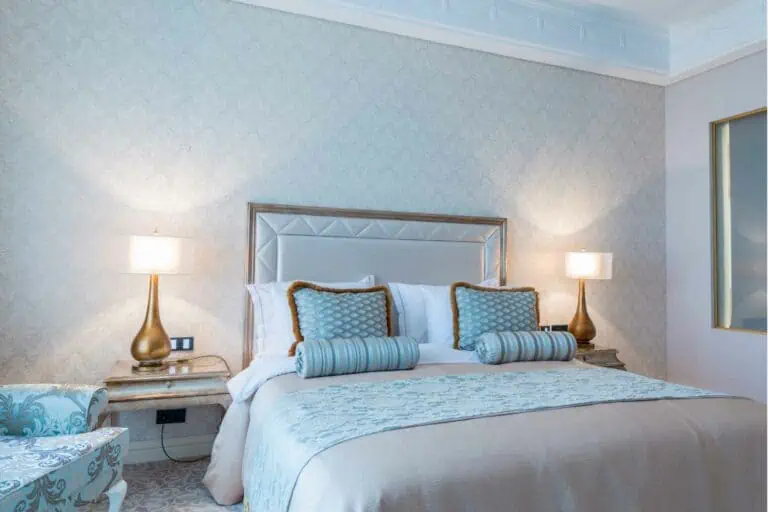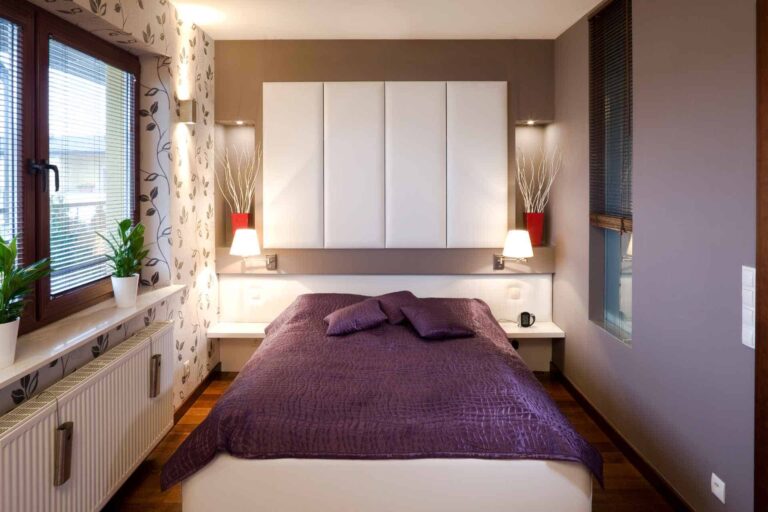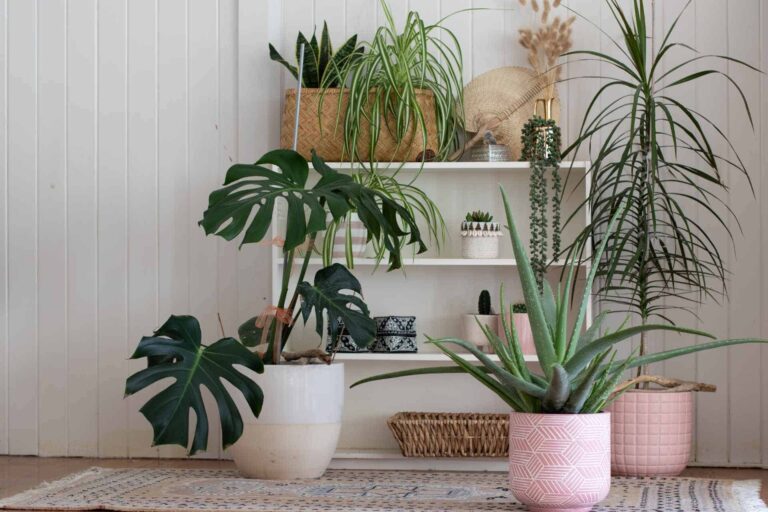Feng Shui Mirror Placement for Good Luck: Do’s and Don’ts
In the world of interior design and spiritual energy balance, the practice of Feng Shui holds significant prominence. One crucial aspect that often comes under scrutiny is Feng Shui mirror placement, believed to steer good luck and positive energy into our living spaces. Mirrors, in Feng Shui, are more than reflective surfaces; they are instrumental in redirecting Chi, the universal life-force, and in turn, influencing our life’s experiences. However, proper placement is paramount. Misplaced mirrors can unintentionally deflect good luck or amplify negative energy. This guide delves into the do’s and don’ts of Feng Shui mirror placement for good luck, offering insights to harness their potential effectively. Whether you’re a Feng Shui novice or a seasoned practitioner, this guide aims to enlighten your understanding of this ancient practice and its influence on our everyday lives.
Understanding Feng Shui and the Significance of Mirrors
Feng Shui, originating from ancient China, is the art and science of creating harmonious environments based on the principles of energy flow, or Chi. It is believed that the balanced flow of Chi in a space promotes health, happiness, and prosperity among its occupants. Within the realm of Feng Shui, mirrors hold a unique place. They are considered powerful tools that can double the energy of a space, reflect what they see, and redirect the Chi flow. A properly placed mirror can magnify positive energy and deflect negative energy, enhancing the Feng Shui of a space. Conversely, an improperly positioned mirror might do the opposite, magnifying negative energy and obstructing the flow of positive Chi. Therefore, understanding the correct placement of mirrors according to Feng Shui principles is essential for anyone looking to bring harmony and good luck into their living spaces.
Overview of Feng Shui Principles
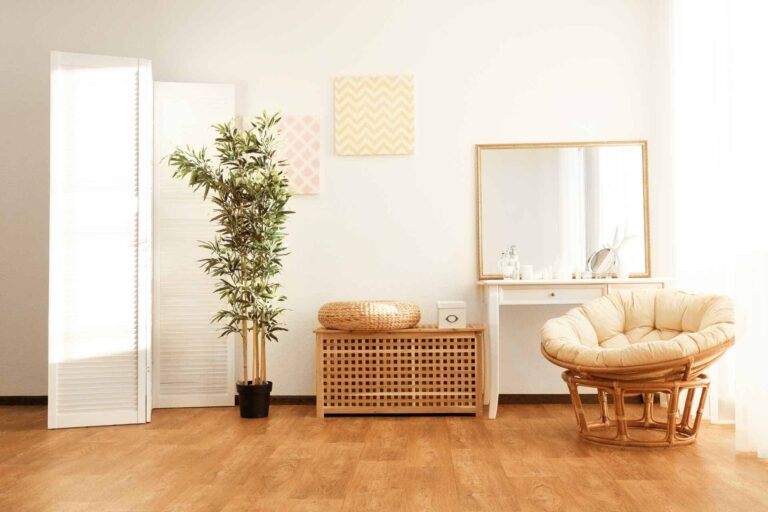
Feng Shui is an ancient Chinese practice that seeks to find balance and harmony between elements. It is a complex system based on the principles of Yin and Yang, the Five Elements – Water, Wood, Fire, Earth, and Metal, and the Bagua, or energy map of a space. By applying these principles, Feng Shui aims to align the energies in our surroundings to enhance our wellbeing and prosperity. It provides guidelines on how to arrange spaces, choose colors, and position specific items to cultivate a positive and balanced environment. These principles can be applied to various spaces, including homes, offices, and gardens, making Feng Shui a versatile and comprehensive approach to creating nurturing and energetic spaces.
The Symbolism of Mirrors in Feng Shui
In the realm of Feng Shui, mirrors are not just simple reflective surfaces; they carry a deep symbolism and are considered as powerful tools that affect the Chi, or energy flow, of a space. Mirrors symbolize water, one of the Five Elements in Feng Shui, representing regeneration, renewal, and flow. Their reflective property is seen as a means of amplifying and attracting positivity, and their ability to “expand” a space symbolically allows them to harness more beneficial energy. Furthermore, being akin to water, mirrors also signify clarity and truth, reflecting back on the reality of our lives and promoting a sense of honesty and transparency. Hence, understanding the symbolism of mirrors in Feng Shui can greatly aid in their effective placement to create spaces brimming with positive energies and harmony.
Do’s of Feng Shui Mirror Placement For good Luck
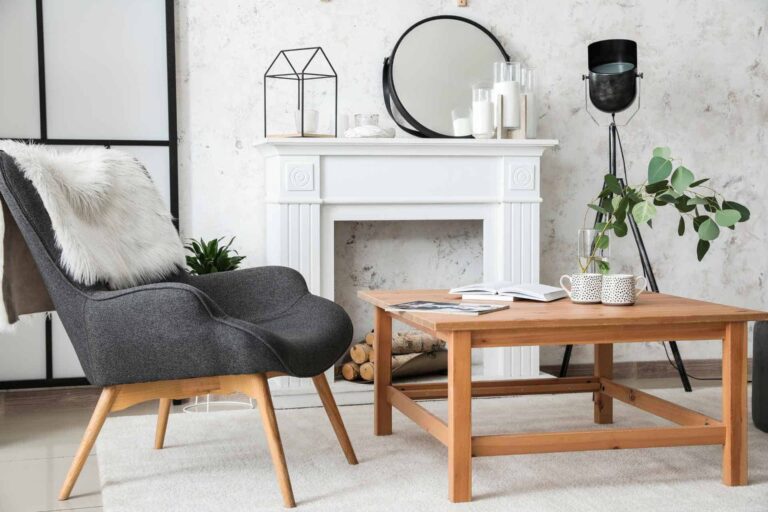
When it comes to mirror placement in Feng Shui, there are a few essential guidelines to follow in order to garner the most positive energy. Primarily, mirrors should be placed in areas where they can reflect beautiful views, as this amplifies the positive energy of the space. Placing a mirror in your dining room, for instance, can symbolically double the abundance in your home. In addition, mirrors should be placed at a height where they reflect the tallest person living in the house, ensuring that the mirror can harness the energy of everyone in the space. Mirrors should be clear and clean, signifying the flow of positive and pure energy. A full-length mirror in the bedroom or dressing area can promote self-image and confidence. Furthermore, using round or oval mirrors can encourage a smooth flow of Chi, as sharp edges or corners can create harsh energy. Finally, always ensure that mirrors reflect light, which boosts the overall brightness and energy of the room.
Facing Towards the Door
In Feng Shui, it’s important to position mirrors thoughtfully, and one common guideline is to avoid placing them facing directly towards the door. The door is seen as the mouth of the home, where energy (or Chi) enters. A mirror facing the door could potentially bounce this energy back out, preventing positive energy from circulating around your home. Conversely, a mirror placed perpendicular to the door can help to slow down and distribute incoming energy more evenly, promoting a harmonious flow. Just like any Feng Shui rule, the key is balance and thoughtful placement, aiming to create spaces that foster positivity and well-being.
Reflecting Positive Spaces
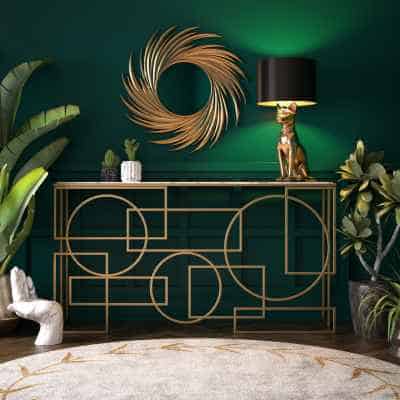
Mirrors in Feng Shui can be powerful tools to transform your living spaces into positive energy zones. When used wisely, they can draw in positive Chi, promote harmony, and enhance the aesthetic appeal of your home. For instance, placing a mirror near your workspace can reflect a serene view from a window, fostering a sense of calm and positivity while you work. A strategically placed mirror in the living room can reflect a beautiful piece of artwork or a lush indoor plant, amplifying the room’s beauty and vibrancy. Remember, the objective is to reflect images that evoke joy, peace, and abundance, turning your home into a sanctuary of positive energy. However, avoid reflecting clutter, as it represents stagnant energy. Similarly, mirrors reflecting chaotic areas, such as a busy road or a cluttered room, can bring in negative energy. In essence, mirrors amplify what they reflect, so be mindful of what’s reflected in your mirrors, ensuring it aligns with the positive energy you wish to foster in your home.
Utilization in Narrow Spaces
Mirrors can be a game-changer for narrow, cramped areas in your home. In Feng Shui, a well-placed mirror can create the illusion of space, making a narrow hallway or a small room appear larger. This not only enhances the aesthetic appeal but also promotes a free flow of positive Chi. For instance, placing a large, full-length mirror on a wall of a narrow hallway can create depth, resulting in a more open and welcoming space. Similarly, in a small room, a mirror placed opposite a window can reflect natural light, brightening up the space and making it feel more expansive. However, remember to ensure that the reflected views are serene and pleasing, aligning with the principles of positive energy in Feng Shui. By following these guidelines, even the most confined spaces can feel spacious, harmonious, and filled with positive energy.
Don’ts of Feng Shui Mirror Placement

While mirrors can be powerful tools in Feng Shui, inappropriate placement can create undesirable results. One key rule is to avoid placing mirrors in the bedroom, especially if they reflect the bed. This is believed to invite a third party into the relationship, leading to infidelity. Similarly, mirrors should not be placed directly opposite each other, creating an energy loop that can cause confusion and restlessness. Mirrors in the kitchen, reflecting sharp objects or flames, are also a Feng Shui no-no, as they are thought to enhance negative energy. Finally, avoid placing mirrors that reflect clutter or disordered areas, as mirrors amplify the energy they reflect, and chaos and disorder are not energies we want to enhance in our homes. By understanding these principles, we can harness the positive aspects of mirror use in Feng Shui, while avoiding potential pitfalls.
Avoid Reflecting Negative Spaces
According to Feng Shui principles, mirrors should never be positioned to reflect negative spaces. Negative spaces include areas of your home that are cluttered, disorganized, or filled with items that carry negative connotations or memories. Mirrors reflecting such areas magnify their energy and disperse it throughout the home, potentially disturbing the harmony and balance. This extends to areas with heavy foot traffic, like hallways or entrances to bathrooms, as these spaces often carry a sense of hurried energy that can cause restlessness. By carefully considering the placement of mirrors to avoid reflecting negative spaces, you can contribute to a more serene and harmonious living environment.
Mirrors Not Facing the Bed

In Feng Shui, it is recommended to avoid placing mirrors directly facing the bed. This arrangement is believed to disturb the tranquility and restfulness of the bedroom, as the mirror could bounce energy around the room, resulting in a restless sleep. Additionally, as mirrors are reflective, they are said to bounce back all the energy coming off the bed. If a person has health issues, these could potentially be magnified. Therefore, for a peaceful and healthy living environment, it is essential to consider the placement of mirrors in relation to the bed.
Avoid Mirrors Facing the Front Door
In the practice of Feng Shui, it is not advisable to place mirrors facing the front door of the home. This setup is believed to reflect and repel all the positive energy entering through the front door, effectively pushing it away instead of drawing it in. The front door is considered the mouth of Chi (life energy), where all the good fortune and prosperity enters. A mirror facing the front door could potentially reflect this Chi back outside, preventing it from permeating the home. Hence, to ensure the abundant flow of positive energy within the home, the placement of mirrors should be carefully considered and they should not face the front door directly.
Enhancing Good Luck with Feng Shui Mirror Placement
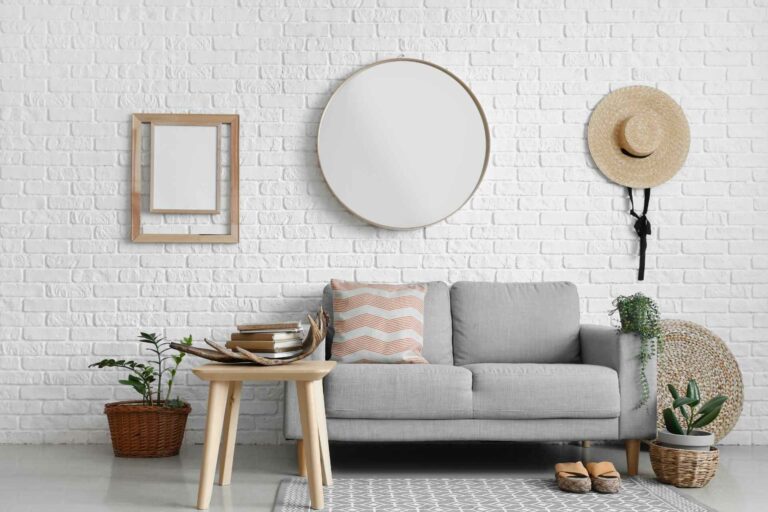
Properly placed mirrors can be a powerful tool in the practice of Feng Shui, helping to attract good luck and prosperity. Here are some tips to enhance good luck using mirrors:
Place Mirrors in the Dining Room: Mirrors placed in the dining room are considered to attract wealth and abundance. By reflecting the image of food and dining, they symbolize the doubling of wealth.
Use Mirrors to Reflect Natural Elements: When mirrors reflect the natural beauty from outside such as plants, the blue sky, or a body of water, they are said to bring calm, peaceful energy as well as prosperity into your home.
Mirrors in the Hallway: A mirror at the end of a long hallway can make the hallway appear larger and create a flow of energy.
Use Round or Oval Shaped Mirrors: In Feng Shui, round or oval mirrors are preferred over square or rectangular ones as they represent a smooth flow of energy.
The key to Feng Shui mirror placement is to reflect positive things and enhance the flow of good energy throughout your space.
Conclusion
In conclusion, thoughtful mirror placement, according to Feng Shui principles, can significantly enhance your home’s energy flow and invite prosperity. Ensuring mirrors do not face the front door directly, positioning them strategically in the dining room, reflecting natural elements, installing them at the end of long hallways, and choosing round or oval shapes are invaluable tips. By reflecting positive elements and amplifying the essence of abundance, mirrors can transform your living space into a haven of tranquility and prosperity. However, it’s important to remember that Feng Shui is not just about mirror placement; it’s a holistic approach to harmonize individuals with their surrounding environment. Remain mindful of other Feng Shui practices, and cultivate a living area that not only attracts good fortune but also promotes a sense of peace, balance, and positivity.

